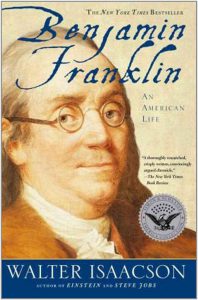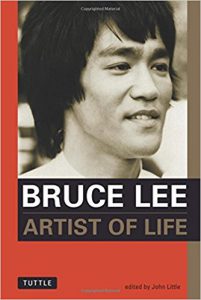When you wake up in the morning, tell yourself: The people I deal with today will be meddling, ungrateful, arrogant, dishonest, jealous, and surly. They are like this because they can’t tell good from evil. But I have seen the beauty of good, and the ugliness of evil, and have recognized that the wrongdoer has a nature related to my own — not of the same blood or birth, but of the same mind, and possessing a share of the divine. And so none of them can hurt me. No one can implicate me in ugliness. Nor can I feel angry at my relative, or hate him. We were born to work together like feet, hands, and eyes, like the two rows of teeth, upper and lower. To obstruct each other is unnatural. To feel anger at someone, to turn your back on him: these are obstructions.— Macus Aurelius (book Meditations)
Blog Posts
Practice kindness all day to everybody and you will realize you’re already in heaven now.
— Jack Kerouac
 A very well documented chronicle.
A very well documented chronicle.
Before reading this book, I decided to read Franklin’s autobiography, and although it is beautifully written with a lot of details, I discovered all the gaps and reasoning behind his ideas after reading Benjamin Franklin: An American Life by Walter Isaacson.
I was inspired by the way Franklin created and guided his life. Challenging the status quo and designing his own way of living.
I believe it was a gift to humanity that he was an enthusiastic writer and documented his life.
Below are some of the ideas that caught my imagination from this book:
About God.
I believe He is pleased and delights in the happiness of those He has created; and since without virtue man can have no happiness in this world, I firmly believe He delights to see me virtuous
Franklin’s study of nature, he said, convinced him that God created the universe and was infinitely wise, good and powerful. He then explored four possibilities:
- God predetermined and predestined everything that happens, eliminating all possibility of free will.
- He left things to proceed according to natural laws and the free will of His creatures, and never interferes,
- He predestined some things and left some things to free will, but still never interferes.
- He sometimes interferes by His particular providence and sets aside the effects which would otherwise have been produced by any of the above causes.
Franklin ended up settling on the fourth option.
The Moral Perfection Project
The following list describes the twelve virtues Franklin thought desirable and wrote a short definition.
This is so interesting since he elaborates on concepts that, without mindfulness, we wouldn’t think about them; they would just be part of our lives, inherited from our family, culture, etc. – Instead, Franklin decides to define them and try to live his life accordingly.
Temperance: Eat not to dullness; drink not to elevation.
Silence: Speak not but what may benefit others or yourself; avoid trifling conversation.
Order: Let all your things have their places; let each part of your business have its time.
Resolution: Resolve to perform what you ought; perform without fail what you resolve.
Frugality: Make no expense but do good to others or yourself; (i.e waste nothing).
Industry: Lose no time; be always employed in something useful; cut off all unnecessary actions.
Sincerity: Use no hurtful deceit; think innocently and justly, and, if you speak, speak accordingly.
Justice: Wrong none by doing injuries, or omitting the benefits that are your duty.
Moderation: Avoid extremes; forbear resenting injuries so much as you think they deserve.
Cleanliness: Tolerate no uncleanliness in body, clothes, or habitation.
Tranquility: Be not disturbed at trifles, or at accidents common or unavoidable.
Chastity: Rarely use venery but for health or offspring, never to dullness, weakness, or the injury of your own or another’s peace or reputation.
 This book showcases Bruce Lee’s private notes and letters, revealing his philosophies and advice to others.
This book showcases Bruce Lee’s private notes and letters, revealing his philosophies and advice to others.
Bruce Lee saw himself as an ‘artist of life’, always trying to be the best version of himself, looking for self-actualisation, rather than self-image actualisation. The first one refers to being honest with oneself and always looking for personal growth with a desire coming from within. The second one refers to the “default setting” for most people that only live for their image – worrying about what other people would think about them.
He tries to simplify these ideas in the following paragraph.
A self-willed man has no other aim than his own growth. He values only one thing, the mysterious power in himself which bids him live and helps him to grow. The power can be neither preserved nor increased nor deepened by money and power, because money and power are the invention of distrust. Those who distrust the life-giving force within them, or who have none, are driven to compensate through such substitutes as money.
And on this one:
It is easy for me to put on a show and be cocky and then feel pretty cool. Or I can do all kinds of phony things and be blinded by it. Or I can show you some really fancy movement. But to express oneself honestly, not lying to oneself—that, my friend, is very hard to do
Each man must seek out realisation himself. No master can give it to him.
Bruce Lee’s hunger for “knowing more” and personal development was remarkable.
I am a teacher as well as a student because I am forever developing and simplifying, but mainly I am known as a teacher, and a notoriously expensive one at that, for when my time is demanded of me my learners pay for its worth.
We play different roles during our life; sometimes we can be a teacher to others (family, friends, other) and other sometimes our role shifts to a learner when we are looking for answers. This was his philosophy for “teachers” and “learners.”
A teacher, a really good teacher, functions as a pointer to truth, but not a giver of truth. He employs a minimum of form to lead his student to the formless. Furthermore, he points out the importance of being able to enter a mold but not being caged in it, or to follow the principles without being bound by them. For a pliable, choiceless observation without exclusion is so essential in the cultivation of martial art—an “altogether alert awareness” without its center or its circumference, to be in it, but not of it. Above all, a teacher should not depend on a method and drill systematic routines; instead, he studies each individual student and awakens him to explore himself, both internally and externally, and ultimately to integrate himself with his being. Such teaching, which is really no teaching, requires a sensitive mind with great flexibility and adaptability, and it is difficult to come by nowadays.
Sincere and serious learners are equally difficult to come by, too. Many students are five-minute enthusiasts; some of them come in with selfish motives, but unfortunately, most of them are secondhand artists, basically conformers. An average practitioner in the martial art seldom learns to express himself; instead, he faithfully follows an instructor, the authority figure, and an imposed pattern. I guess a person finds more security in mass imitation; unfortunately what is nurtured is the depending mind rather than independent inquiry. These tradition-bound teachers reinforce the conditioning through their daily teaching and will not try to understand reality as it is because it condemns them. As time goes by their practitioners might understand some routines and might even become skillful according to a particular pattern. However, they have not come to understand themselves. In other words, they have gained control of the manipulative routine skill they have, but not what they are in themselves.
As human beings, we are ‘work in progress’, and to Bruce, it was clear that self-knowledge is a continuing – non-stop process.
through self-exploration, flexible awareness, and self-expression one finds himself. Such self-knowledge is a continuing process, and the artist that possesses such quality expresses himself with the utmost freedom.
A reminder from Bruce Lee about staying focused, humble and true to yourself.
At the end of the day, it doesn’t matter if you practice Gung Fu or other martial art, the following thought represents what I aim to achieve in life.
A gung fu man devotes himself to being self-sufficient and never depends upon the external rating by others for his happiness. A gung fu master, unlike the beginner, holds himself in reserve, is quiet and unassuming, without the least desire to show off. Under the influence of gung fu training his proficiency becomes spiritual, and he himself, grown ever freer through spiritual struggle, is transformed. To him, fame and status mean nothing.
David Foster Wallace Commencement Speech to Kenyon College class of 2005.
About the real value of education.
“I’m supposed to talk about your liberal arts education’s meaning, to try to explain why the degree you are about to receive has actual human value instead of just a material payoff. So let’s talk about the single most pervasive cliché in the commencement speech genre, which is that a liberal arts education is not so much about filling you up with knowledge as it is about quote teaching you how to think. If you’re like me as a student, you’ve never liked hearing this, and you tend to feel a bit insulted by the claim that you needed anybody to teach you how to think, since the fact that you even got admitted to a college this good seems like proof that you already know how to think. But I’m going to posit to you that the liberal arts cliché turns out not to be insulting at all, because the really significant education in thinking that we’re supposed to get in a place like this isn’t really about the capacity to think, but rather about the choice of what to think about'”
When you throw a rock into the water, it will speed on the fastest course to the bottom of the water. This is how it is when Siddhartha has a goal, a resolution. Siddhartha does nothing, he waits, he thinks, he fasts, but he passes through the things of the world like a rock through water, without doing anything, without stirring; he is drawn, he lets himself fall. His goal attracts him, because he doesn’t let anything enter his soul which might oppose the goal. This is what Siddhartha has learned among the Samanas. This is what fools call magic and which they think is effected by demons. Nothing is effected by demons, there are no demons. Everyone can perform magic, everyone can reach his goals, if he is able to think, if he is able to wait, if he is able to fast.
But life is very short and anxious for those who forget the past, neglect the present and fear the future. – Seneca